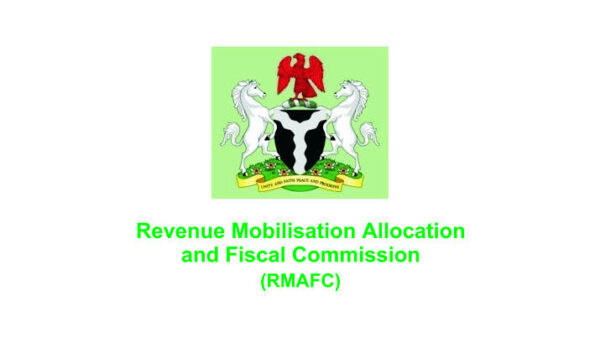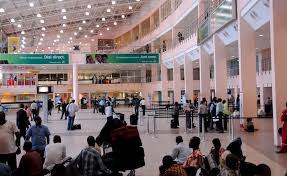Mass Migration of Nigerians: Addressing the Japa Syndrome By Akande Ismail Abiola
The unprecedented mass Migration of Nigerian youths for greener pastures in the last six years has continued with no end in sight. Dissatisfied with the current state of affairs in the country, hundreds of thousands of youths and even older adults have left Nigeria for advanced countries despite the huge financial cost involved.
A Pew Research Centre study conducted in 2018 shows that Nigeria tops the chart of people who intend to migrate to another country within the next five years with 48% among the 12 countries sampled for the survey.
Another report by the UK government revealed that 13,609 Nigerian healthcare workers were granted working visas in 2021. This number makes Nigeria second only to the 42,966 from India.
These statistics indicate that since the period of civil war over 50 years ago, the current wave of relocation has never been experienced.
In a bid to evade from the aversive and strangulating socio-political and economic climate, young people and middle-aged Nigerians have sought refuge in “Japa”- (a Yoruba slang for escape) from the country at the slightest opportunity.
The need for safety of life and properties, access to undisrupted qualitative education, and gainful employment opportunities represent the major causes of the current Japa wave.
Effect of Mass Migration on the Citizens and the Nigerian Economy
The current Japa syndrome portends great danger to the citizens and the Nigerian economy at large. One such danger is the brain drain experienced in critical sectors of the economy. According to a report from the Nigeria Medical Association (NMA), Nigeria lost over 9000 medical doctors to the UK, USA, and Canada between 2016-2018. With a decreasing number of Medical Doctors, Nigeria spends between $1.2 billion and $1.6 billion on medical tourism each year.
Apart from those moving abroad for postgraduate education, young and experienced practitioners in the field of Medicine, IT professionals, Health and social care among others are leaving the country in their thousands. This worrisome trend indicates that even those with well paying jobs in Nigeria are also leaving the country.
However, the Nigerian government appears unperturbed by the outbound migration of its young professionals and future asset. When asked about the mass exodus of Doctors from Nigeria sometime last year, the minister of labour and productivity, Dr. Chris Ngige, vehemently rubbished the brain drain insinuation in his response. He was quoted as saying, “Who said we don’t have enough doctors?
We have more than enough. You can quote me. There is nothing wrong with them travelling out. When they go abroad, they earn money and send them back home here. Yes, we have foreign exchange earnings from them and not just oil”.
Nigerians abroad have continuously given back to the country via increasing Diaspora Remittance. According to the data from the Central Bank of Nigeria, Nigeria received $10.11 billion as diaspora remittance between January and June 2022.
Such Remittances have been largely publicised and celebrated in some quarters owing to the country’s dire need for foreign exchange. But these remittances are not necessarily used for investments in human capital development, healthcare, funding education, and acquisitions, through which it could positively affect the economy. In the current dispensation, a large chunk of the diaspora remittance is mainly utilised for consumption- which prolongs the country’s economic growth thereby doing us more harm than good.
Another damaging effect of the Japa syndrome on citizens and the economy is the huge amount of revenue in tax loss. Taxation is an integral source of revenue for Nigeria’s three tiers of government. It ensures that the government secures a stable flow of income channelled to providing infrastructural facilities, security of life and properties, job creation, and growing investment, among others.
According to the Federal Inland Revenue Service (FIRS) reports, Personal Income Tax (PIT) represents 63.73% of the Internally Generated Revenue (IGR) in 2021. Considering the hundreds of thousands of people that have migrated in recent years and the millions of Nigerians in the diaspora for decades, one can only imagine the huge loss in tax revenue and the infrastructural gap such revenue would have addressed.
Roles of Government in Mitigating the Effects
Employment and Employability Skills Education
There’s an urgent need to provide creative and innovative employment opportunities to the teeming population of unemployed graduates. It is a known fact that the government cannot single-handedly provide enough employment opportunities.
However, the government at various levels can create an enabling environment for private sector intervention by enhancing ease of doing business. The private sector remains a veritable tool to boost the growth of the Nigerian economy. Reducing the bureaucratic bottleneck investors face in the course of establishing their businesses will bring about needed employment opportunities for unemployed youths.
Also, the Skill Acquisition and Empowerment Department (SAED) of the National Youth Service Corp (NYSC) needs to be emboldened and incentivized to encourage entrepreneurship further. Collaborative efforts such as the recently launched Nigeria Youth Jubilee Fellowship Programme (NJFP), which seeks to match unemployed graduates with a one-year job placement, should also be given the necessary support to thrive. In addition, states and local governments have important roles to play in providing facilities for self employment and employability skill’s acquisition.
The combined efforts of government and private sector when pursued aggressively with sincerity of purpose will bring a significant reduction in Nigeria’s unemployment rate which is projected to hit 37% in 2023.
Security of Life and Properties
Security of life and properties must be given the priority it deserves. Governments have, over the years, paid lip service to this issue. With killing and kidnapping at an all-time high, many have been forced to sell off their properties to fund their move to foreign countries. Even the fervent preachers of
“Nigeria go better” have been made to reconsider their position in the face of incessant threat to life and wellbeing. To arrest this situation, the federal government should give room for the establishment of state police. By enabling each state to address its peculiar security challenges, the federal police will have less fish to fry.
An end to Government/ASUU Impasse
Additionally, The perennial industrial action embarked upon by the various labour unions must be seriously addressed. Many months of inactivity on our campuses have forced thousands of students and lecturers to migrate to other countries. According to a report from UK higher education statistics agency Erudera, The number of Nigerians studying in the UK has tremendously increased by 64% from 13,020 in the 2019/2020 session to 21,305 by the 2020/2021 academic session. Other Advanced economies like the USA and Canada have in recent times reported massive increase in the inflow of students from Nigeria.
Likewise, the comatose state of our educational system has led thousands of Nigerian students to settle for an academic sojourn in other African countries such as South Africa, Benin Republic, and Ghana. This is an embarrassment for a country that once prided itself as the giant of Africa.
Therefore, governments at both federal and state level must tackle the decayed infrastructural facilities at our various institutions of learning head-on. The political will to honour past agreements with the various Academic staff unions is sine qua non to putting the incessant strike actions to bed.



















































